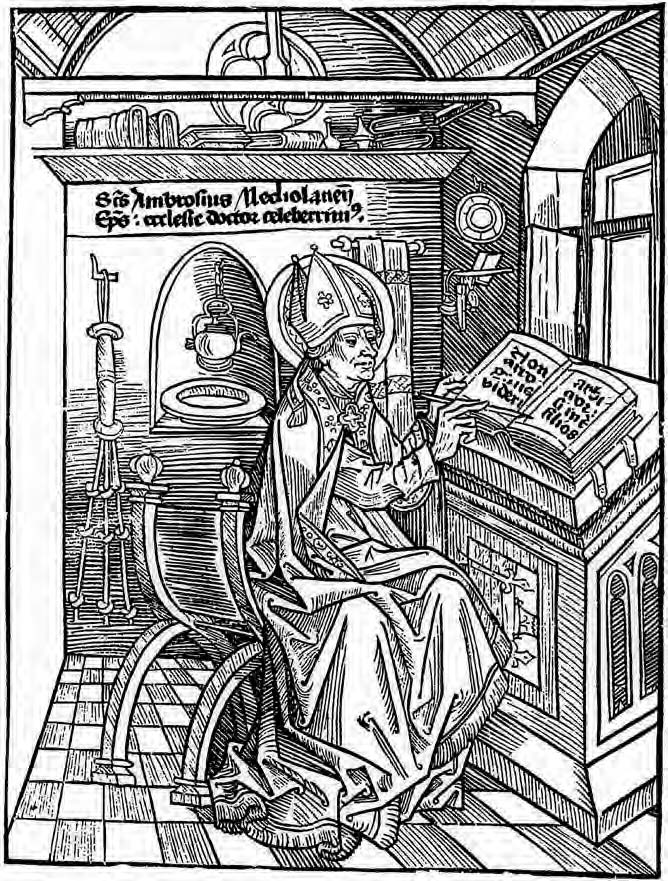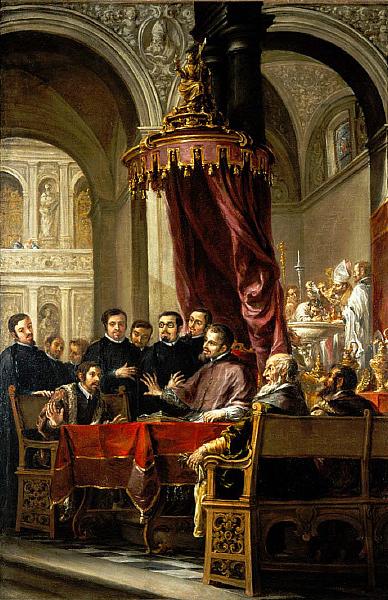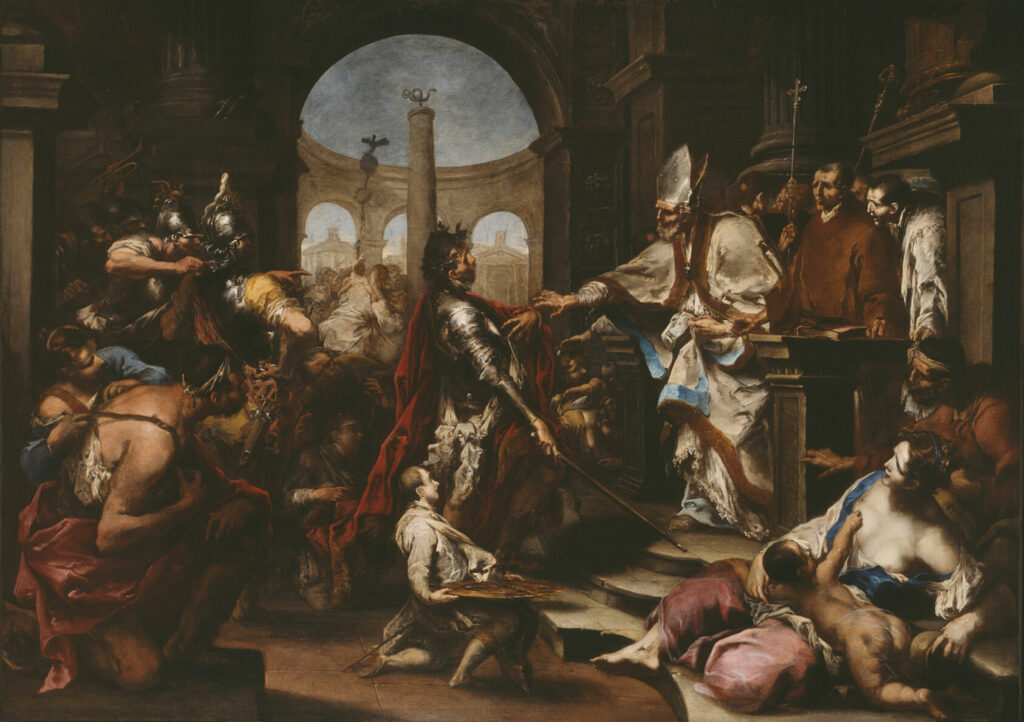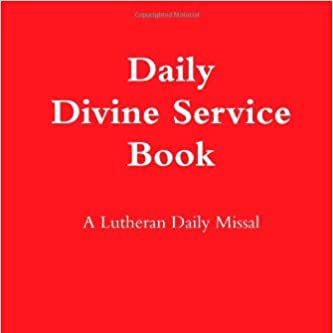The Honey-Tongued

St. Ambrose lived during the fourth century in Milan. He is remembered to this day as a faithful bishop, teacher, and hymn-writer. Even though Ambrose made a lasting mark on the Christian Church, he wasn’t always involved in religious matters. Until adulthood, Ambrose was principally concerned with the state. He was born to Aurelius Ambrosius, who served as the prefect of Gaul. As a young man, Ambrose followed in his father’s footsteps, receiving a well-rounded education in philosophy and religion. But God and the Italian people had other plans for him.
By 372 Ambrose had already made a name for himself as a governor of northern Italy and was most noted for his moving rhetoric. In fact, legend holds that Ambrose was destined to be a powerful orator from infancy when one night his father beheld a swarm of bees over Ambrose’s crib. Miraculously, Ambrose was left unharmed by the bees, and his father took this as a sign that his son would possess a “honeyed tongue.” Regardless of whether this story is true or apocryphal, Ambrose won the favor of many through his eloquent speech during his time as governor.
It was in this capacity that Ambrose was called upon to oversee the election of the new Milanese bishop. During the proceedings, a heated debate broke out, and the people could not come to a consensus as to who the new bishop should be—that is, until a small voice broke through the crowd chanting, “Ambrosius Episcupus…. Ambrosius Episcupus..!” Soon, others joined in, cheering for “Bishop Ambrose!” The people had made up their mind: Ambrose for bishop! Faced with the excited mob, Ambrose, who had not yet even received baptism, had no choice but to concede to their wishes. He was to be baptized in November and consecrated as bishop on December 7, 374.
His episcopacy was marked by a staunch defense of the orthodox faith against the Arians. His Treatise on the Holy Trinity made an unequivocal confession of the doctrine of the Holy Trinity that was later foundational for the Western thinkers of the Church. As a defender of orthodoxy, his boldness for the true faith cannot be understated. Ambrose flatly refused to hand over basilicas to those in power who would concede places of worship for Arians. When the emperor slaughtered thousands and tried to walk into church the following Sunday, Ambrose excommunicated him until he made public penance (which he did).
Ambrose also took the opportunity as bishop to build a new basilica, the Basilica Ambrosius, some of which remains today in Milan.
The Milanese bishop’s powerful preaching affected many hearers, and no one more than on of his most famous pupils, St. Augustine. St. Ambrose catechized and baptized St. Augustine and unlocked for him the Scriptures in a way that Augustine had never heard before. Through Ambrose, the Holy Spirit revealed to Augustine that Christianity could hold its own against the popular and pagan philosophical schools of the day.
Brief History
The hymns of Ambrose have been sung through the centuries and handed down to us in our own hymn book, the Lutheran Service Book. One of his most popular hymns, “Savior of the Nations, Come,” is found appropriately within the season of his commemoration: Advent. He is also the author of two other beloved hymns found in our hymnal, a morning hymn “O Splendor of God’s Glory Bright” (LSB 874) and an evening hymn “O Blessed Light, O Trinity” (LSB 890). Both are notably trinitarian, reflecting Ambrose’s confession against the rampant heresy of his day.

Through Christ, the Lutheran Church also has Ambrose to thank not only for his confession of the Trinity in a critical time during the Arian controversy but also for his faithful teaching on justification. When writing the apology (defense) to the Augsburg Confession, the reformers highlight the theology of Ambrose, the Romans’ own doctor of the Church, who in no uncertain terms affirmed the doctrine of justification:
“And on this account let no one boast of works, because no one is justified by his deeds. But he who is righteous has it given him because he was justified after the laver [of Baptism]. Faith, therefore, is that which frees through the blood of Christ, because he is blessed “whose transgression is forgiven, whose sin is covered,” Ps. 32:1. (Apology IV:389).
Since the years following his death, the Church has given thanks to God for Ambrose’s writings, hymns, and orthodox confession by remembering him in the sanctoral calendar. Interestingly, his feast day does not fall on the date of his death, as are the feasts of most saints, but on the day of his consecration as bishop. Because of his influence throughout the Church, this feast day has been kept by churches in the West and the East for centuries, and given his profound contributions to our piety, our doctrine, and our confessional writings, it is no surprise that the Lutheran Church continues to celebrate him to the present day.

Collect
O God, Who didst give Blessed Ambrose to Thy people as of a minister of eternal salvation: grant, we beseech Thee, that we, who have had him for our teacher on earth, may with him enjoy Thine eternal glories; through Jesus Christ our Lord, who liveth and reigneth with Thee and the Holy Ghost: ever one God, world without end. Amen.
Lessons
Epistle
Gospel
Resources
Issues, Etc. interview with the Rev. Dr. Bill Weinrich on Fourth Century Bishop of Milan Ambrose
Propers found in Daily Divine Service Book: A Lutheran Daily Missal, edited by the Rev. Heath Curtis
References:
1. Greenslade, S. L. (Ed.). Early Latin theology. Westminister Press. 1956.
2. Peter Brown. Augustine of Hippo: a biography. 2000.
Images:
1. St. Ambrose in His Study, Johannes Amerbach, Germany, 1492.
2. The Conversion and Baptism of St. Augustine by St. Ambrose, Juan de Valdes Leal, Spain, 1673.
3. Theodosius Repulsed from the Church by Saint Ambrose, Alessandro Magnasco, Italy, 1710.
Some links might be affiliate links which means we may receive a small commission at no extra cost to you. As an Amazon Associate we earn from qualifying purchases.



